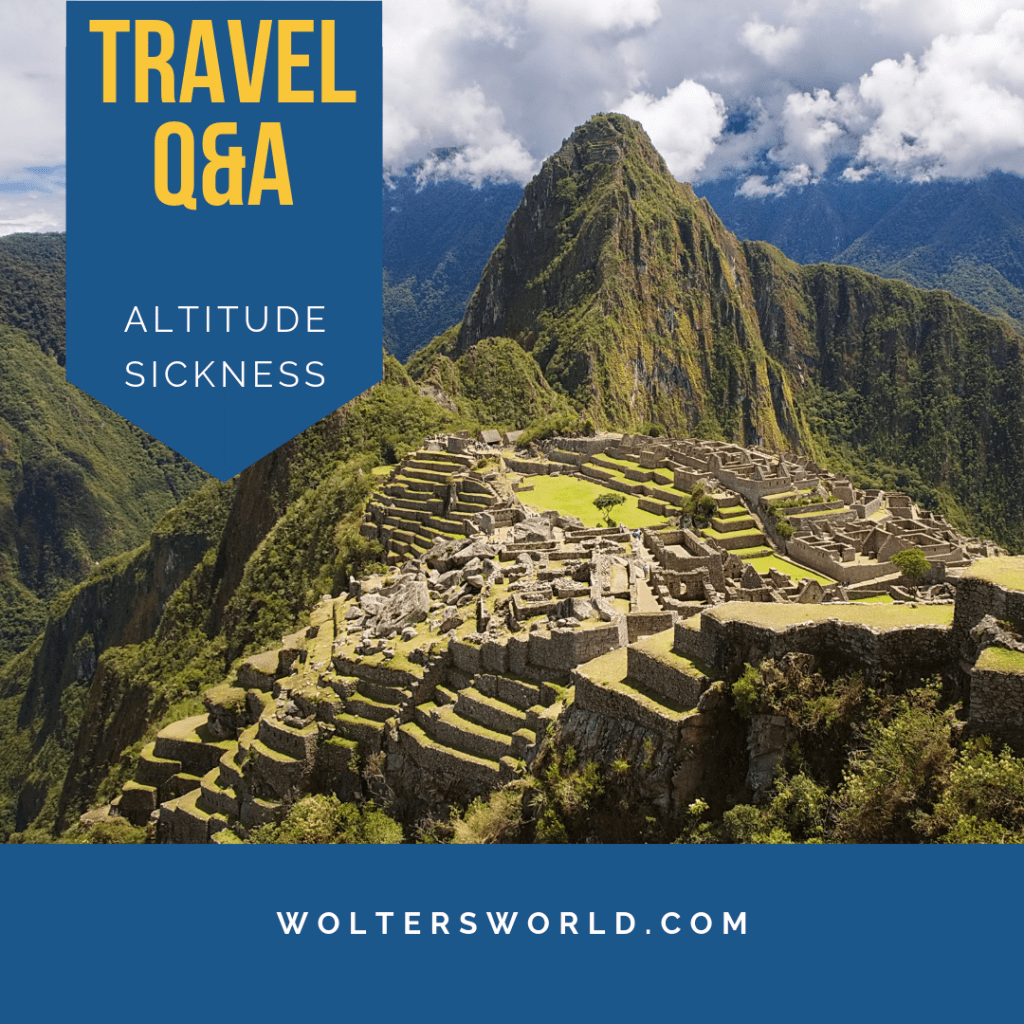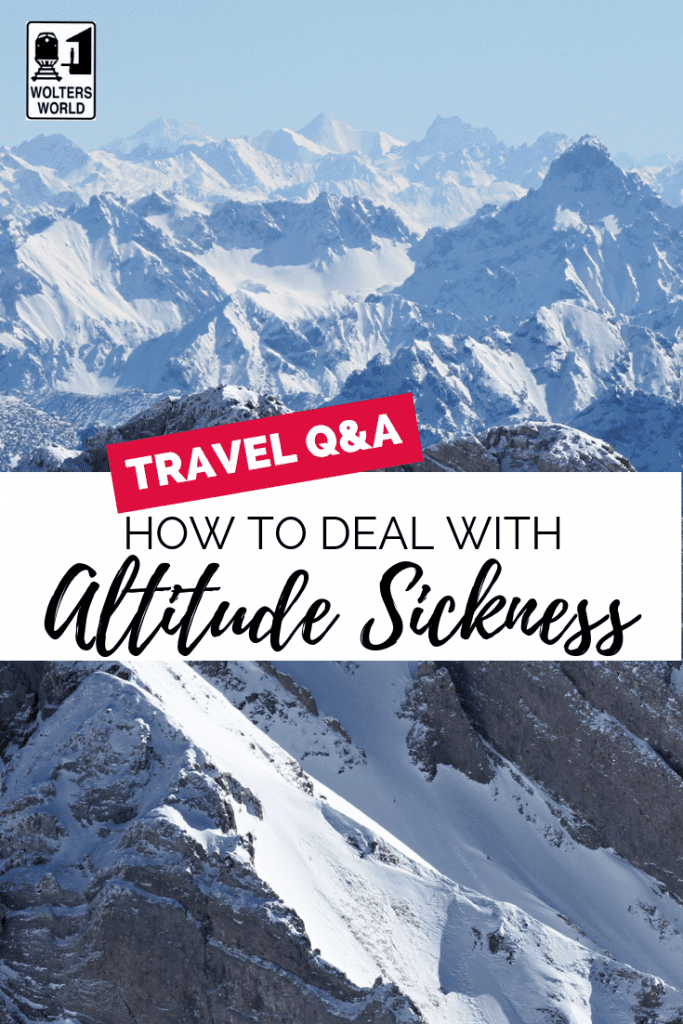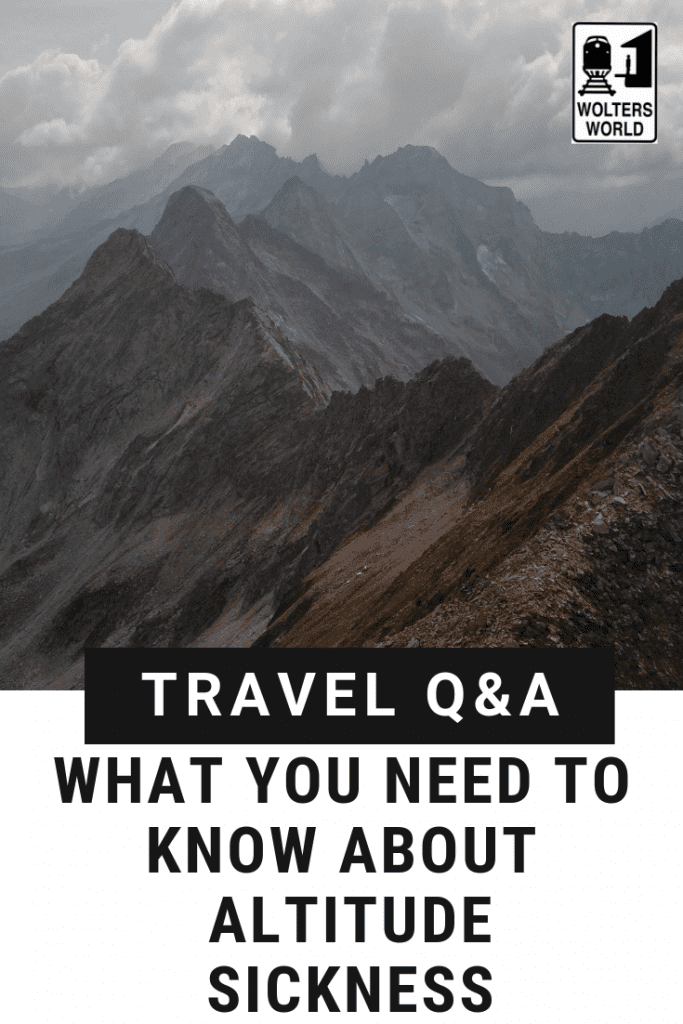Hey there, fellow travelers! Today, we’re in Cusco, Peru. We often get travel questions from our fans, so today I’m going to address something very timely for our trip to Peru. When I landed in Cusco, my head was pounding, my heart was beating fast and I felt nauseous. Kinda like falling in love! But it wasn’t love, it was mal de altura, or high altitude sickness. If you are planning a mountain vacation, you need to know how to deal with altitude sickness. In this post, we’re going to cover the symptoms of high altitude sickness, altitude sickness prevention and altitude sickness treatment. With these tips, you will be better prepared to deal with altitude sickness, whether you’re visiting the mountains of Peru, or any other mountain vacation you are planning.
Who Gets Altitude Sickness?
It can be very hard to predict who gets altitude sickness, and fitness levels or good health isn’t always an accurate predictor. I had mild altitude sickness symptoms, while Jocelyn spent an entire day in bed with high altitude sickness, and even received supplemental oxygen from our hotel. It can also affect the same person differently each time. On my first trip to Peru, I had no altitude sickness, while I experienced a small amount this time around.
Watch: Seven Common Travel Ailments
Can I Do Anything Before My Trip to Lessen the Effects of Altitude Sickness?
Yes. If you are planning a trip to high altitude locations, it doesn’t hurt to visit your doctor before you leave. They may be able to prescribe altitude sickness medication for you. (These aren’t without side effects, so it’s important to speak with your doctor and weigh your options.) Some altitude medication is taken before your trip, while other medications are taken once you arrive. My parents did this prior to visiting Peru and did not experience any altitude issues.

Can I Do Anything Upon Arrival to Lessen the Effects of Altitude Sickness?
Rest: You may feel symptoms immediately upon arrival at altitude. However, whether you feel anything or not, it’s always a good idea to take it easy on the first day. Plan this rest day into your vacation itinerary; do not plan any tours or excursions and give yourself time to acclimate. Taking it easy can really make a difference in how you feel on the second day of your mountain vacation.
Hydration: Staying hydrated, even making sure you are hydrated before your trip, can really help with altitude sickness. Since you can’t really drink the tap water in Peru, make sure you stock up on bottled water as soon as possible. Avoid alcohol; it is more impactful at altitude, and can exacerbate the symptoms of altitude sickness.
Read: Seven Ways to Beat Jet Lag
What Are The Symptoms of Altitude Sickness?
According to the Mayo Clinic, people may experience altitude sickness in many ways. Low oxygen in your body may result in an inability to exercise, fatigue, and loss of appetite. You may feel very sleepy, or have difficulty sleeping. You may experience nausea or vomiting. And you will most likely have rapid breathing and/or shortness of breath.

How Can I Treat Altitude Sickness?
Visit a Pharmacy: If you are really feeling the altitude, visit the local pharmacy and tell them you have mal de altura. They can give you pills based on your symptoms, which will help you feel better.
Oxygen: Some hotels will have oxygen tanks available for guests. This can make a huge difference if you are feeling pretty ill. Some of the local stores sell tiny oxygen tanks, although we felt the tank at the hotel was more effective. If your hotel does not have any, they will likely know where you can get some.
Coca Leaves: a common “cure” for altitude sickness in Peru is to drink coca tea, or chew on coca leaves. Yes, this is the same plant that cocaine is derived from, and it’s illegal to bring coca leaves or tea back to the United States. However, it’s not the same form as cocaine, so you shouldn’t be afraid to try it if you are feeling sick. You’ll see it in all the stores in many forms, like candy or gum, and your hotel will most likely have tea for you. If you are traveling with children, check with your doctor ahead of time whether coca leaves are safe for children.
What if No Remedies are Helping My Altitude Sickness?
For some people, the remedies mentioned above just don’t work. If this happens to you, you might consider going back down to a lower elevation. Even just 500-1000 meters can make a huge difference. This is why mountain climbers have a saying “Climb high, sleep low.” Your body can recover faster at lower altitudes and you’ll feel better faster.

I hope this post helps you prepare for your mountain vacation, anticipate the effects of altitude sickness, and know how to handle it if it happens to you. With the elevation, don’t forget that the sun’s UV rays are extra strong, too. Don’t add a sunburn to the ill effects you’re feeling from altitude. Have you experienced altitude sickness or have advice? Tell us in the comments! For more travel tips, check out these blog posts and videos:
